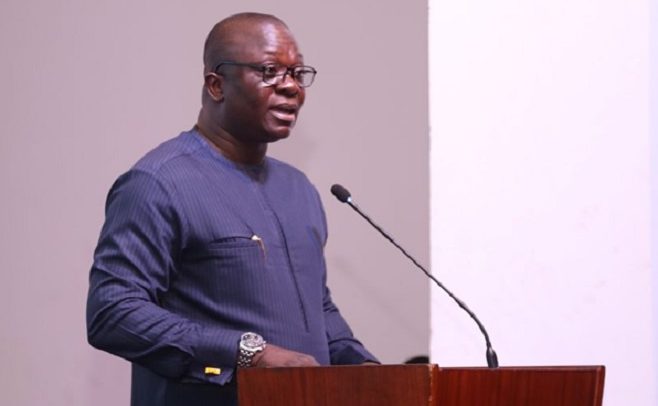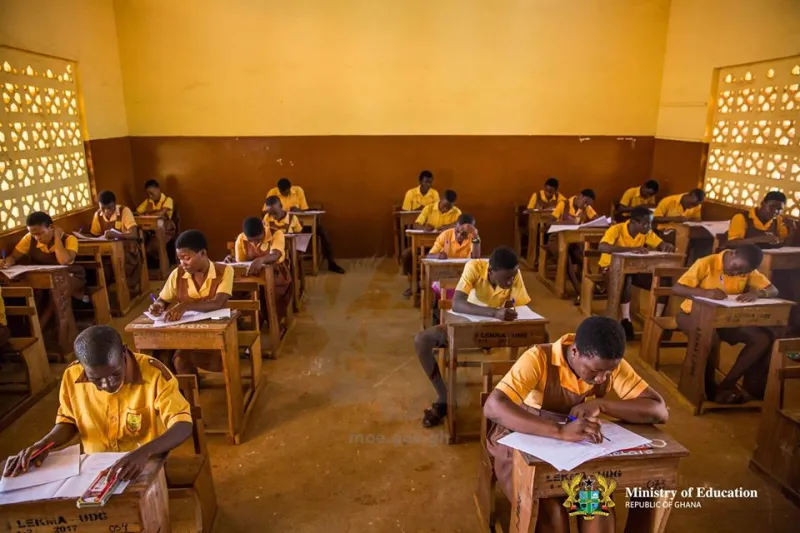

 Dr Robert Bright Mawuko Sagbadji, Deputy Director for Nuclear and Emerging Green Technologies at the Ministry of Energy and Green Transition, says financing a just green energy transition is critical to safeguarding Ghana’s food sovereignty and protecting livelihoods.
Dr Robert Bright Mawuko Sagbadji, Deputy Director for Nuclear and Emerging Green Technologies at the Ministry of Energy and Green Transition, says financing a just green energy transition is critical to safeguarding Ghana’s food sovereignty and protecting livelihoods.
He explained that Ghana’s approach to energy transition was deliberately designed to avoid economic hardship while promoting sustainable development.
Dr Sagbaddji, also the Acting Coordinator for the National Energy Transition Programme, was speaking in an interview with the Ghana News Agency, after a panel discussion at the Future of Energy Conference 2025 in Accra.
He said: “In the context of Ghana, green and just transition means we are moving to cleaner fuels, but nobody must suffer its effects in terms of the economics. We must minimise stranded assets, minimise job losses, and maximise the benefits of energy transition without adverse effects on our economy.”
Dr Sagbadji noted that unlike the global push for 2050, Ghana’s energy transition framework extended to 2070, providing room for a gradual shift that allowed the country to harness its natural resources while steadily advancing towards cleaner energy.
He emphasised that this careful planning was necessary to prevent energy poverty and stranded assets that often emerged when transitions were rushed.
“Our pathway is structured to make sure that Ghana takes advantage of its resources, mines and uses them sustainably, and at the same time moves towards clean energy without destroying the economy,” he explained.
The Future of Energy Conference 2025 brought together government agencies, civil society organisations, private sector players, and development partners to deliberate on sustainable energy pathways.
The side event was organised by ActionAid Ghana in collaboration with the Africa Centre for Energy Policy focused on the theme: “Financing a Just Green Energy Transition for Sustainable Food Sovereignty.”
The dialogue highlighted the direct links between renewable energy financing and food sovereignty, stressing that climate change was already impacting agriculture and energy systems.
It aimed to amplify advocacy on scaling up investments in renewable energy that would also strengthen food security and protect smallholder farmers.
The Future of Energy Conference 2025 convened diverse stakeholders across Africa to deliberate on practical solutions for a sustainable and equitable energy future, with food security at the heart of the discussions.
Dr Sagbadji described the forum as an important platform for Ghana to showcase its plans and share lessons with other African countries, many of which had yet to develop comprehensive energy transition frameworks.
“This conference is one of the pathways to get the news out there to the people, to everybody in Ghana, to everybody in Africa, because this is a conference which has African countries attending. Sometimes you have to see the plans of Ghana so that they can adopt and also develop their energy transition. Not all African countries have developed a pathway, and Ghana is available to support them to do so sustainably,” he said.
Touching on Ghana’s commitments to cut carbon emissions, Dr Sagbadji highlighted several national policies, including the Energy Transition Framework (2022–2070), the Renewable Energy Master Plan, and the National Energy Policy.
These, he said, were all synchronised to ensure that Ghana’s transition efforts remained coherent and measurable.
“A lot has been done. If you look at the Energy Transition Framework, if you look at the national energy policy, the contents have outlined clear pathways towards energy transition to a net zero. The Renewable Energy Master Plan, which is under review, is also one of the pathways,” he explained.
He further revealed that Ghana was updating its Nationally Determined Contributions (NDCs) 2.0 and simultaneously developing NDCs 3.0 to align with international climate targets under the Paris Agreement.
These, he stated, embodied actions from multiple sectors; energy, transport, agriculture, and others, ensuring that emission reduction efforts were comprehensive.
“These policies have embodied all the contributions from the different sectors to make sure our pathway is clear and outlined, so that anybody who takes the book can ask governments or implementing agencies questions on it. Whether it is on renewable energy penetration, fuel blending, or other commitments, it is all written down,” Dr Sagbadji stated.
The discussants underscored that financing was central to making energy transition equitable and effective.
The resolved that linking renewable energy adoption with food sovereignty was vital, as smallholder farmers and rural communities remained vulnerable to climate change.
Ensuring their access to clean energy solutions, Mr Kwadwo Gyasi Santo, Lecturer, University of Energy and Natural Resources said, was key to sustainable food systems and national resilience.
The stakeholders further resolved that, by embedding inclusivity in transition policies and ensuring that vulnerable groups benefitted from investments, Ghana’s transition could serve as a model for other African nations navigating similar challenges.
Source: GNA
The post Financing just green energy transition key to Ghana’s food sovereignty – Expert appeared first on Ghana Business News.
Read Full Story











Facebook
Twitter
Pinterest
Instagram
Google+
YouTube
LinkedIn
RSS